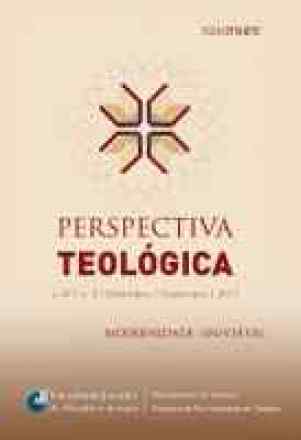APOCALIPSE E A PANDEMIA: JESUS INSERIDO NA REALIDADE DAS VÍTIMAS
Perspectiva Teológica
APOCALIPSE E A PANDEMIA: JESUS INSERIDO NA REALIDADE DAS VÍTIMAS
Autor Correspondente: Isidoro Mazzarolo | [email protected]
Palavras-chave: Apocalipse, Jesus Cristo, Vítimas, Comunidades cristãs
Resumos Cadastrados
Resumo Português:
“Ouça o que o Espírito diz às Igrejas” (Ap 2,7). O livro do Apocalipse, surgido no fim do primeiro século da era cristã, manteve as comunidades de pé frente à política devastadora do Império Romano e das acusações das sinagogas (Ap 2,9; 3,9). No caminho da história, e fazendo eco aos nossos dias, se inverteu o teor profético desta narrativa, produzindo medo e apatia social. A pandemia, também, revelou a fragilidade do sistema hegemônico e colocou às claras a necessidade de outro paradigma civilizatório. O planeta já não suporta mais este modelo econômico fixado na produção, no capital e no lucro. A proposta, neste artigo, é confrontar essas duas realidades e fazer uma hermenêutica. Como a literatura apocalíptica vem em socorro de um novo estilo de vida, alicerçado em Jesus, o Cordeiro de Deus, identificado com as vítimas da história? Como a pandemia, sinal claro de uma crise humanitária cósmica, pode ressurgir como oportunidade para uma nova humanidade?
Resumo Inglês:
“Listen to what the Spirit says to the Churches” (Rev 2:7). The book of Revelation, which appeared at the end of the first century of the Christian era, kept communities strong in the face of the Roman Empire´s devastating politics and the accusations of Synagogues (Rev 2:9; 3:9). Throughout history, and still echoing today, the prophetic content of this narrative has declined, giving way to fear and social apathy. The pandemic, too, has revealed the weakness of the hegemonic system and clearly highlighted the need for another civilizing paradigm. The planet no longer supports an economic model based on production, capital and profit. This article aims to confront both of these realities and engage in hermeneutics. How can apocalyptic literature encourage a new way of life, based on Jesus, the Lamb of God, identified with the victims of history? How can the pandemic, a clear sign of a cosmic humanitarian crisis, present/become an opportunity for a new humanity?

